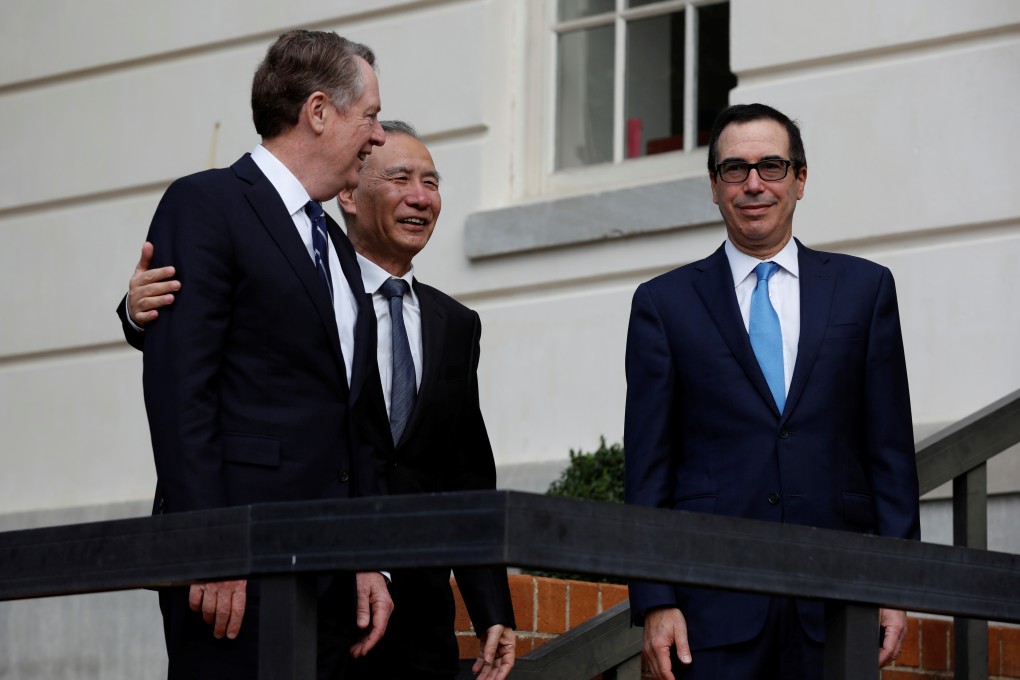Advertisement
China, United States say good progress being made on phase-one deal to end trade war
- Negotiators have ‘agreed to appropriately resolve the core concerns of both parties’, Xinhua says
- After agreeing on the ‘easy parts’, the two sides are now ‘warmed up’ for their trickier phase-two negotiations, analyst says
Reading Time:3 minutes
Why you can trust SCMP

Frank Tangin Beijing
China and the United States are making good progress on the “phase-one” trade deal they hope to sign next month, with some sections now close to being finalised, the two sides said in separate statements.
The announcements came after China’s Vice-Premier Liu He spoke to US Trade Representative Robert Lighthizer and US Treasury Secretary Steven Mnuchin over the phone on Friday night, as they continued to look for ways to bring an end to a 15-month trade war that has damaged economies around the world.
According to a statement from Xinhua on Saturday, the two sides have reached consensus on US imports of Chinese cooked poultry and a quality supervision system for catfish products, as well as China lifting a ban on US poultry, and how to apply a public health information system for meat products.
Advertisement
“Both sides agreed to appropriately resolve the core concerns of both parties,” it said. “Working-level deputies will speed up talks for the trade deal before the principals talk over the phone in the near future,” it said.

The Office of the US Trade Representative, meanwhile, said on Friday that officials have “made headway on specific issues” and were “close to finalising some sections of the agreement”.
Advertisement
Advertisement
Select Voice
Choose your listening speed
Get through articles 2x faster
1.25x
250 WPM
Slow
Average
Fast
1.25x